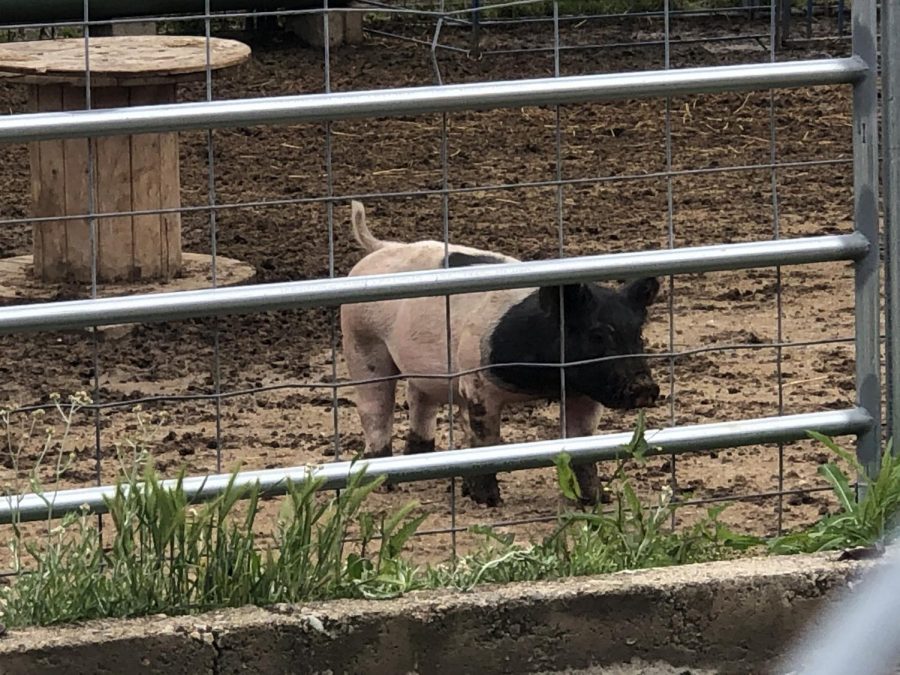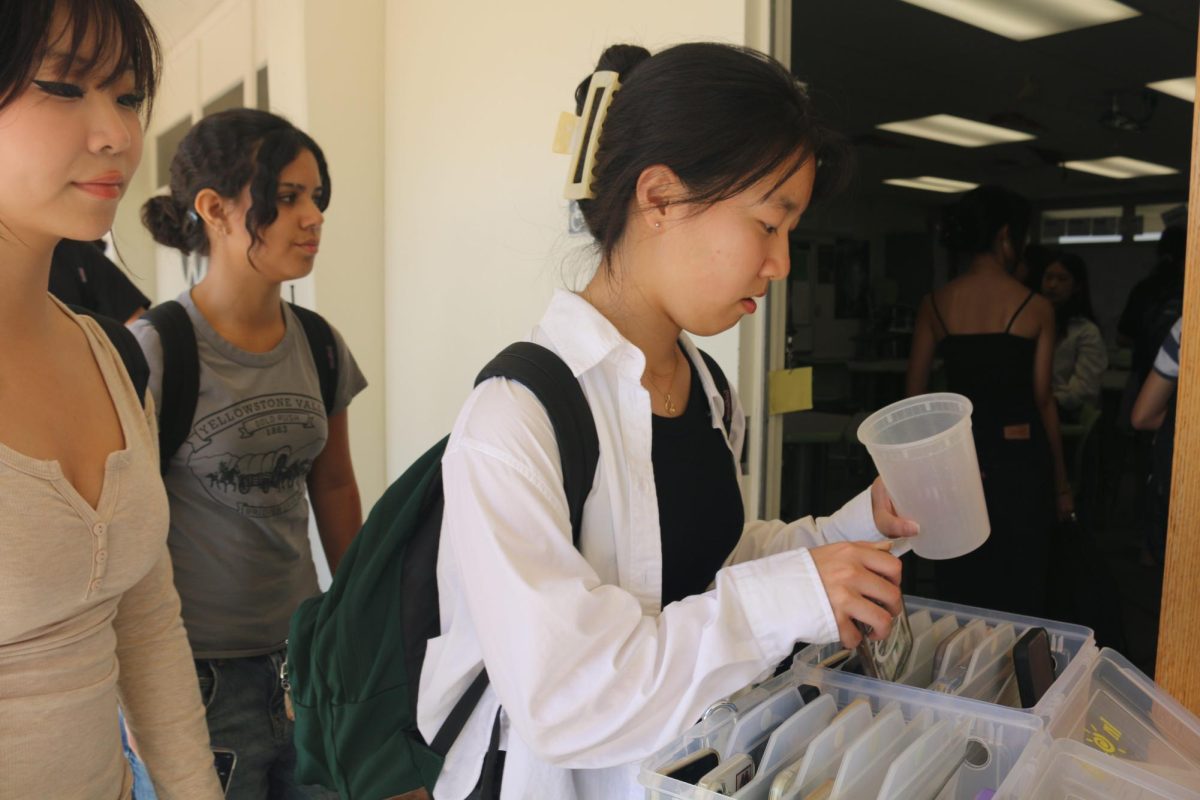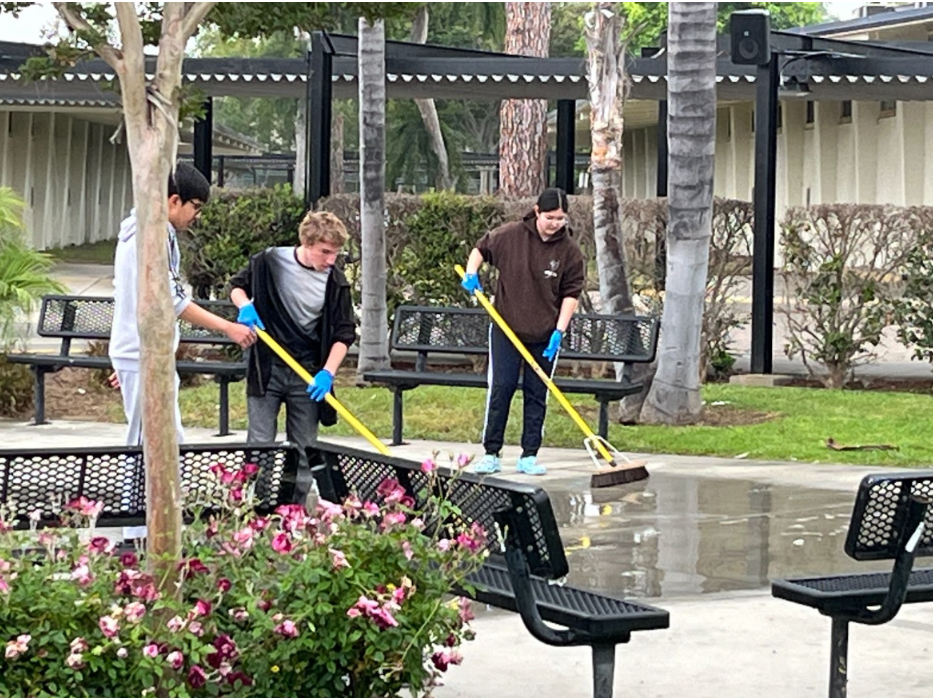First, the Fullerton Joint Union High School District [FJUHSD] over the summer banned all livestock from any of its farms for agriculture students because the coronavirus pandemic had forced the closure of all live, classroom instruction.
Then at the start of the 2020-2021 school year, Sunny Hills agriculture students were notified that they wouldn’t be allowed to work with any animals at all because an increased number of positive COVID-19 cases in Orange County had forced the continuation of distance learning.
But in an unexpected move, district officials have agreed to bring back an unspecified number of livestock to the farms for ag students to take care of when they arrive.
“When COVID-19 hit, we had to exclude students from coming to campus; a decision was made to move the animals off the farm and, basically, all the district farms were directed to get rid of animals,” Sunny Hills principal Allen Whitten said. “They had to just sell them, or just say we can no longer be in the business of owning livestock or animals at all. So that took place, and different farms and different groups around Orange County purchased the animals.
“Now … we learned that we’re able to start bringing some animals back on to the farms. So they’re in the process of purchasing some of those animals back.”
(Because the information was given to The Accolade on Monday, Sept. 21, the story is still developing, and more details about the specific types of animals and when they will arrive were not available at press time. We will also include updated reaction from ag teachers and students once they become available.)
Meanwhile, at the beginning of the school year when agriculture teachers Brian Kim and Jeremy Cates had to inform their students about the initial prohibition of livestock on the farm, they declined to comment about the situation.
But many agriculture students, especially upperclassmen who’ve been in the program to raise and take care of such animals as cows, goats and chicken for three or more years, were quite disappointed with the mandate from the summer.
“I found out on one of the first days of school when Mr. Cates was talking about the plans for the year; he mentioned that there’s a high probability of animal projects not being available this year,” said junior Sophia Winters, the school’s Future Farmers of America (FFA) chapter vice president.
Winters said she had signed up to raise a goat again but dropped out of the project when she heard that the program would not be competing at the Orange County Fair.
“I miss the whole experience of having to wake up early and go to the farm, come back later in the day, clean and walk with my goat [from my freshman year],” Winters said. “I loved seeing how the goat would become more comfortable with me.”
Senior Jesse Reyes has earned $220 from selling to his relatives the pigs he has raised at the farm since his freshman year.
“I am a little upset about [the change] because this was supposed to be my last year and the last animal I was going to raise,” said Reyes, FFA chapter secretary.
Many of the ag students in the past had also submitted their animals for judging at the Orange County Fair to earn awards. But district officials had decided it was best to remove all animals from the farms starting in June since the live fair event was canceled because of COVID-19 health and safety issues, and state regulations for raising farm animals have tightened because of the COVID-19 pandemic,
“It’s just gotten very complicated,” Whitten said. “There’s so many rules around agriculture. Already the state regulates agriculture, and they’re at a really high degree for really good reason, making sure there’s no food poisoning or disease.”
Without livestock to care for, agriculture students said they were given the option of taking care of vegetation, such as tomato or pepper plants, in their own homes.
Whitten acknowledged that this school year’s ag students have had a challenging start.
“Those poor ag kids and our agriculture program and trying to sustain an agriculture program with all these rules and regulations, and everything else, … it’s just been really tough on them,” he said.







![Students and staff across the Fullerton Joint Union High School District [FJUHSD] received emails promoting a part time job offer with pay. The messages were set from compromised FJUHSD accounts.](https://shhsaccolade.com/wp-content/uploads/2025/09/image1-2-1200x527.png)






